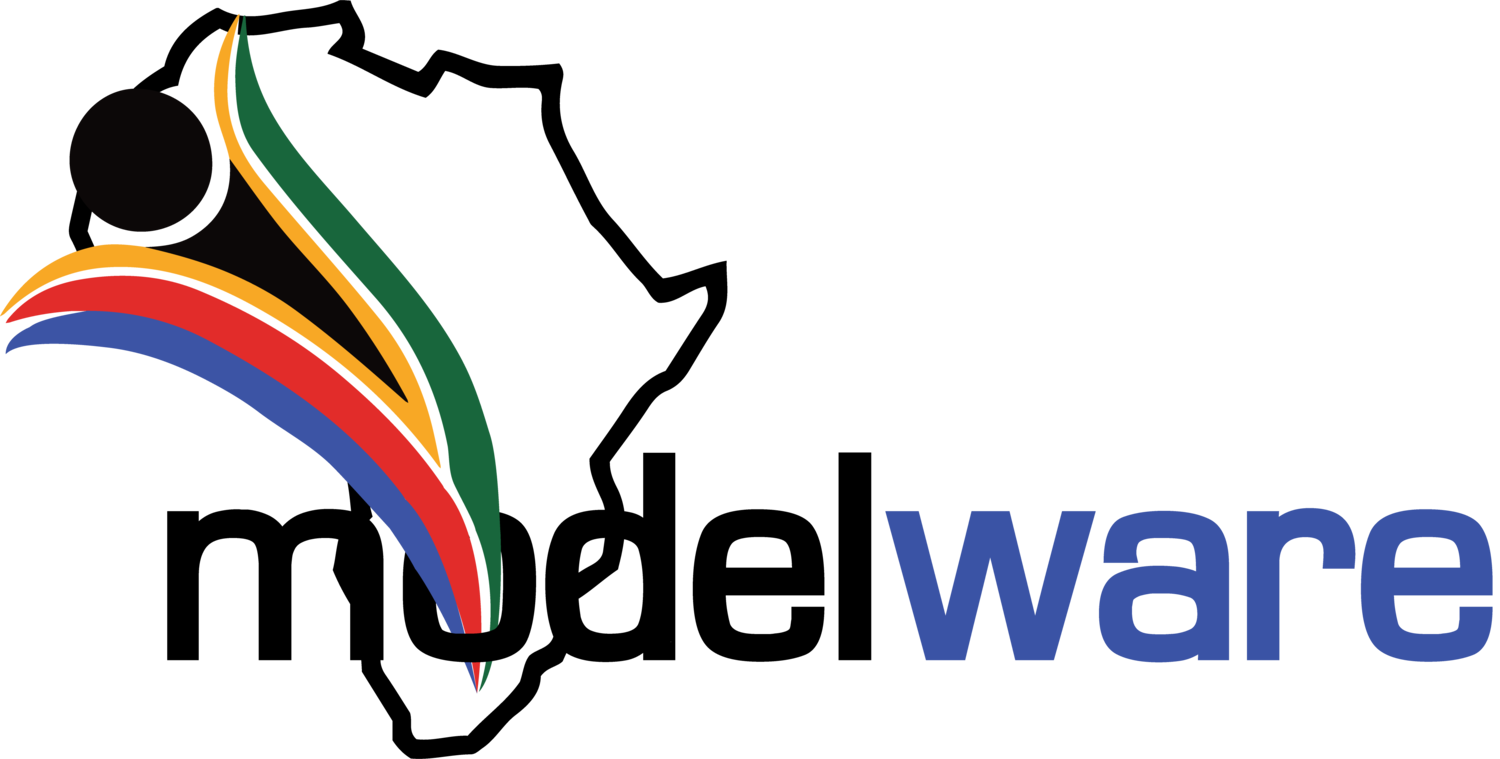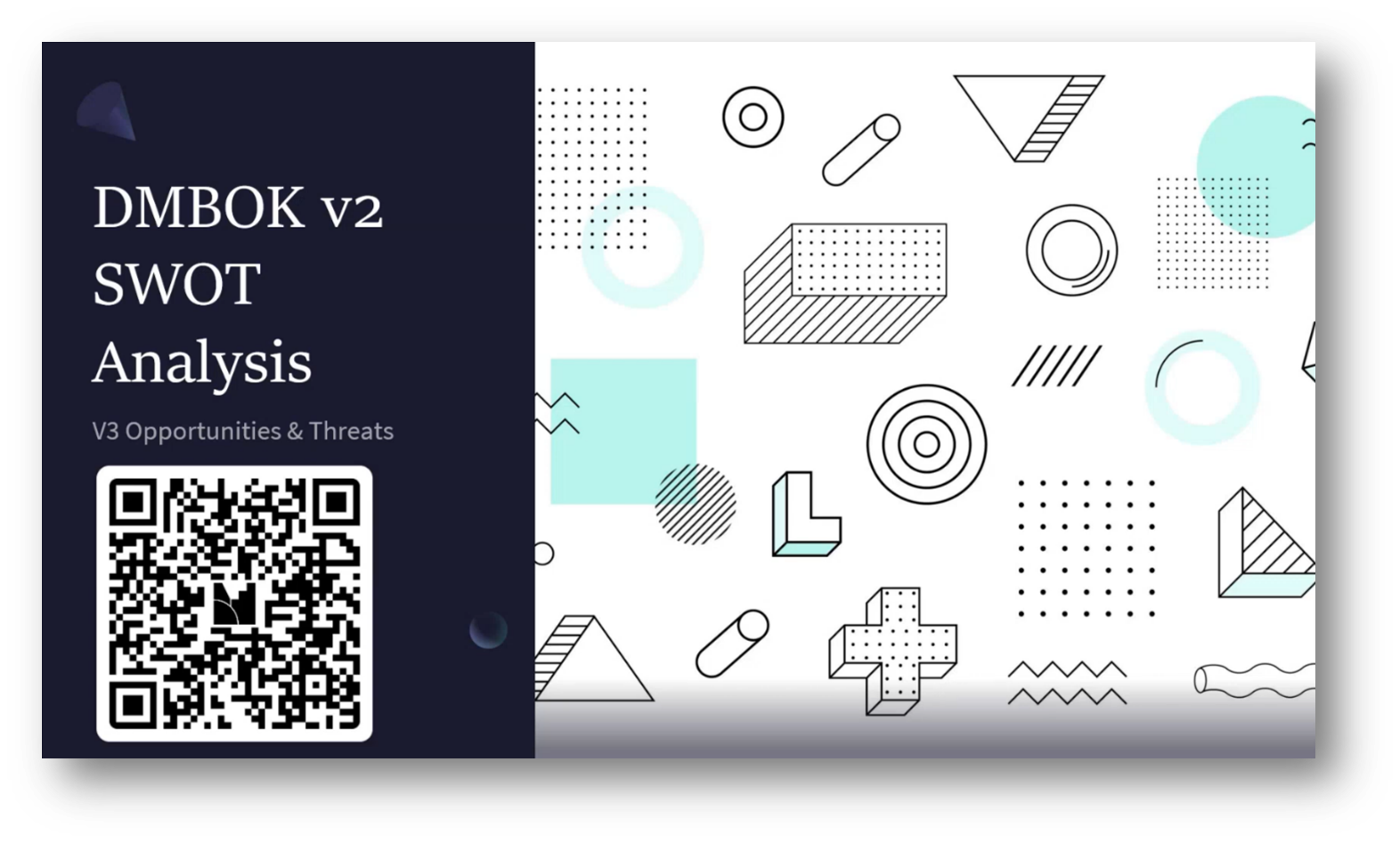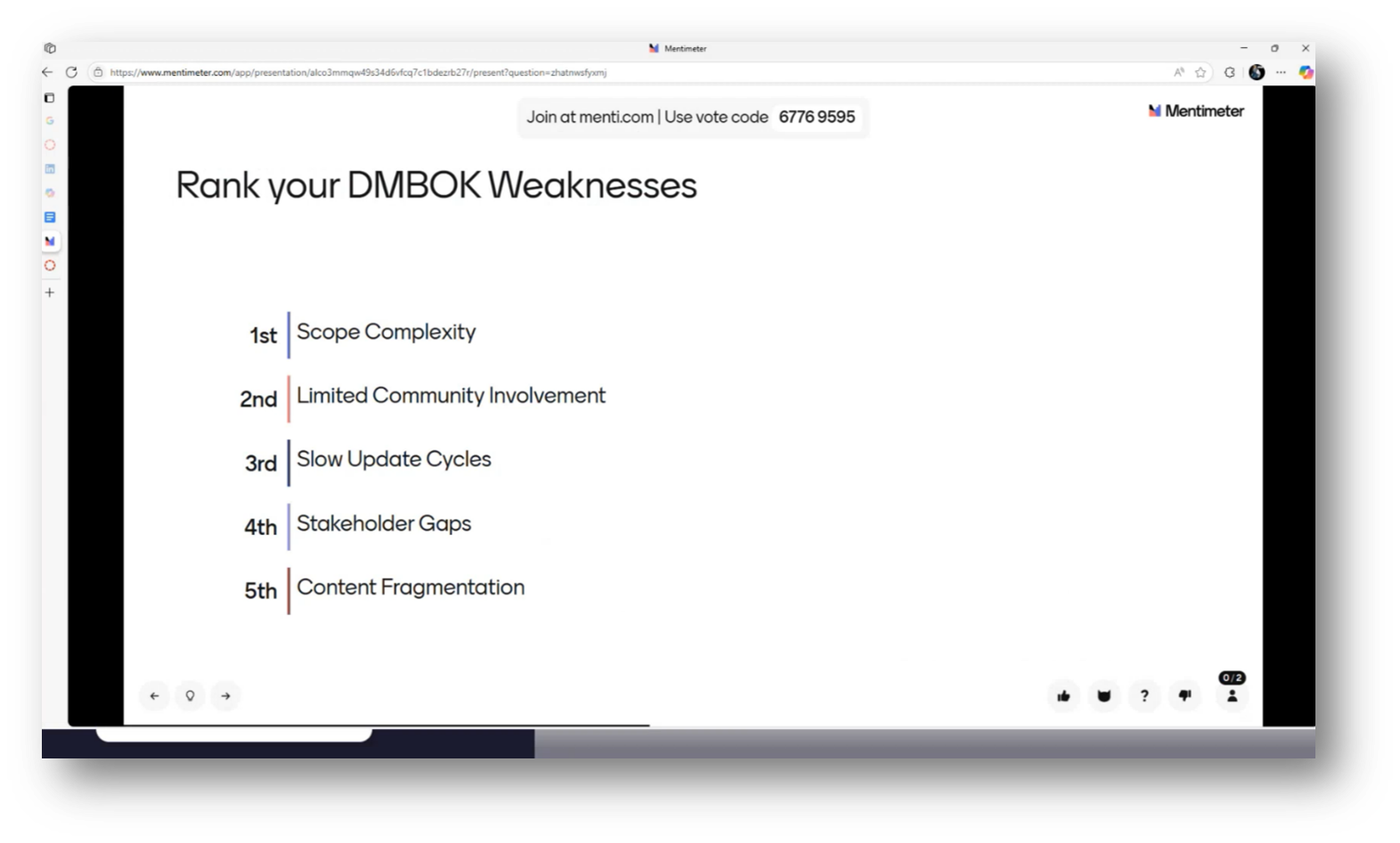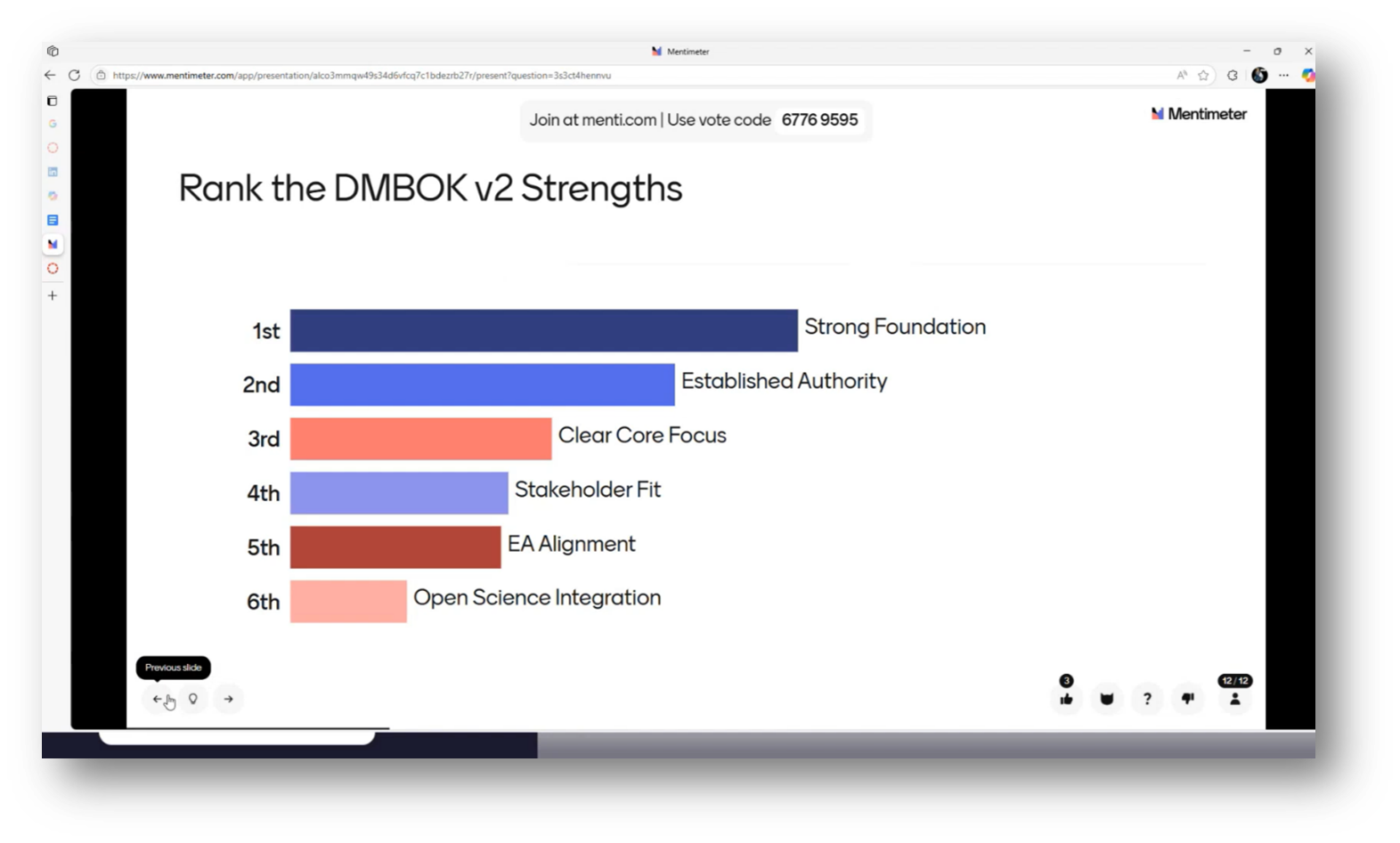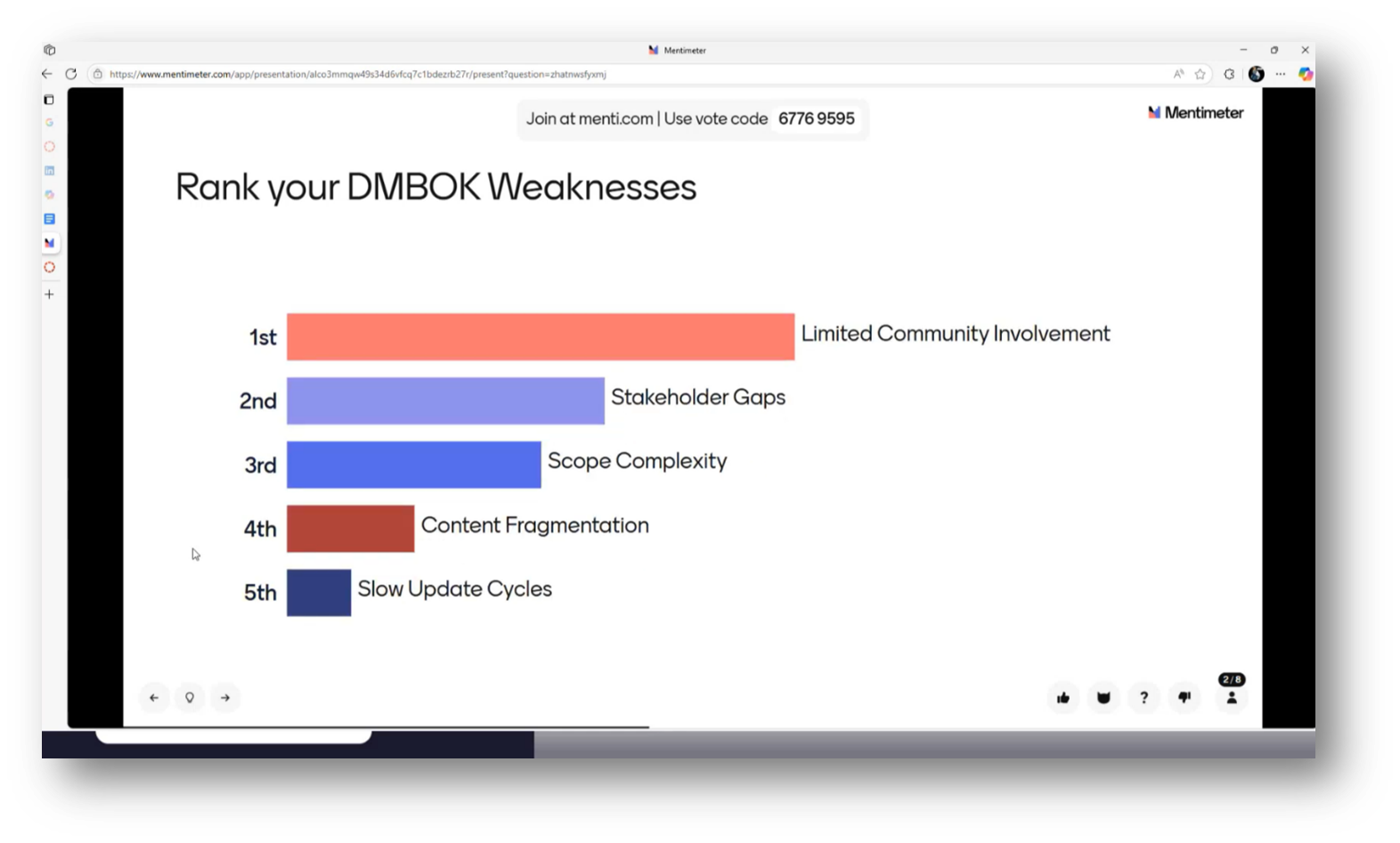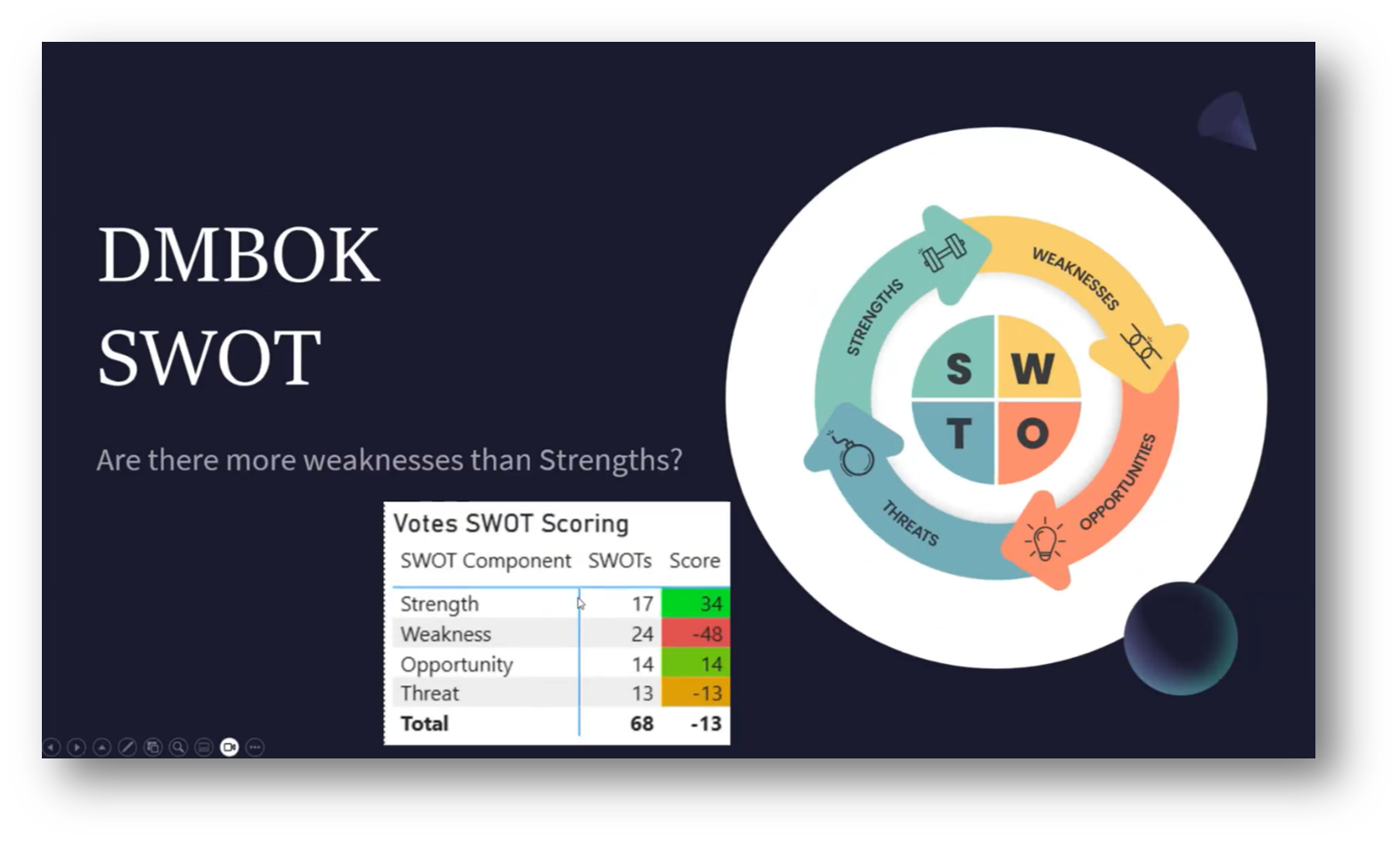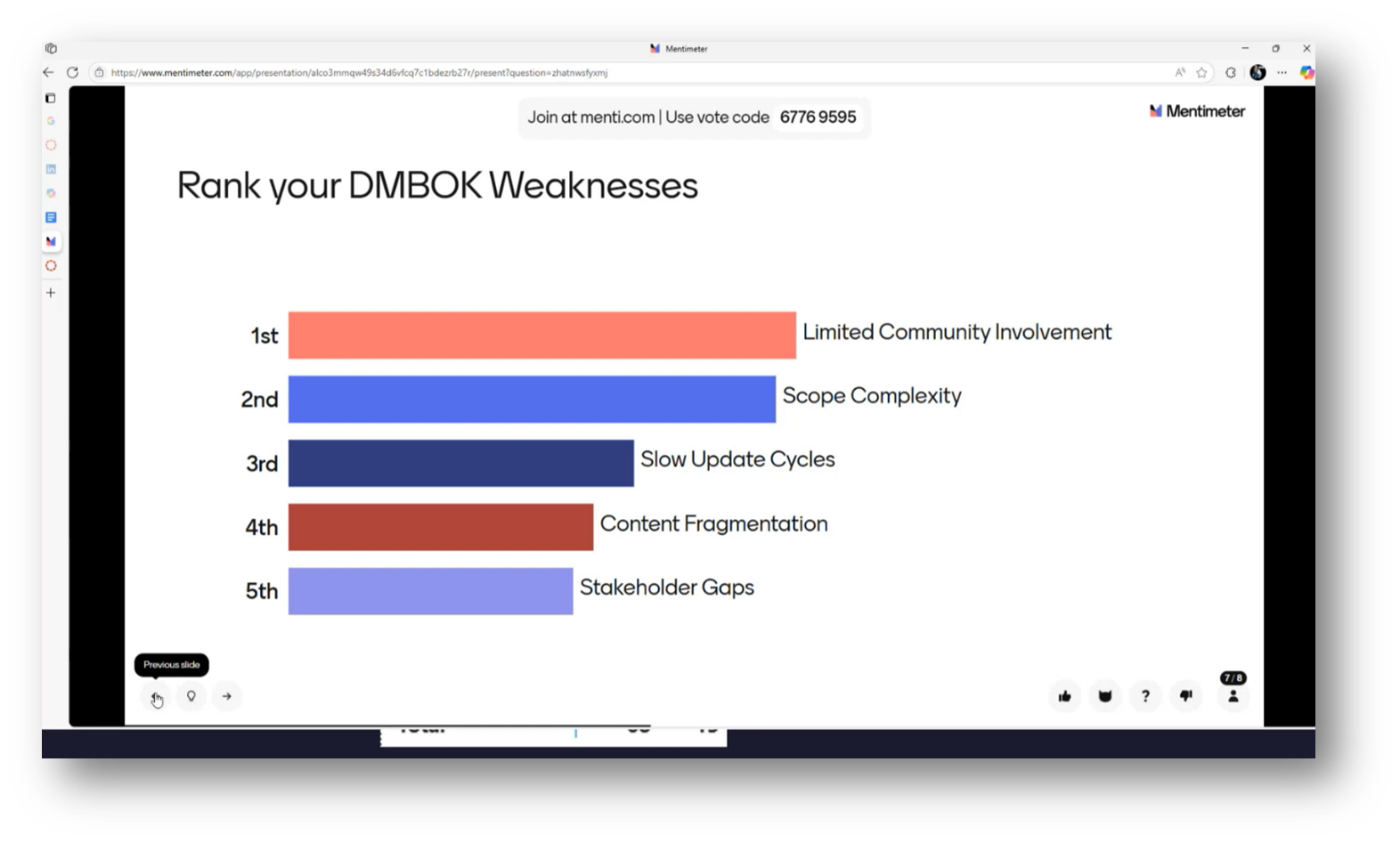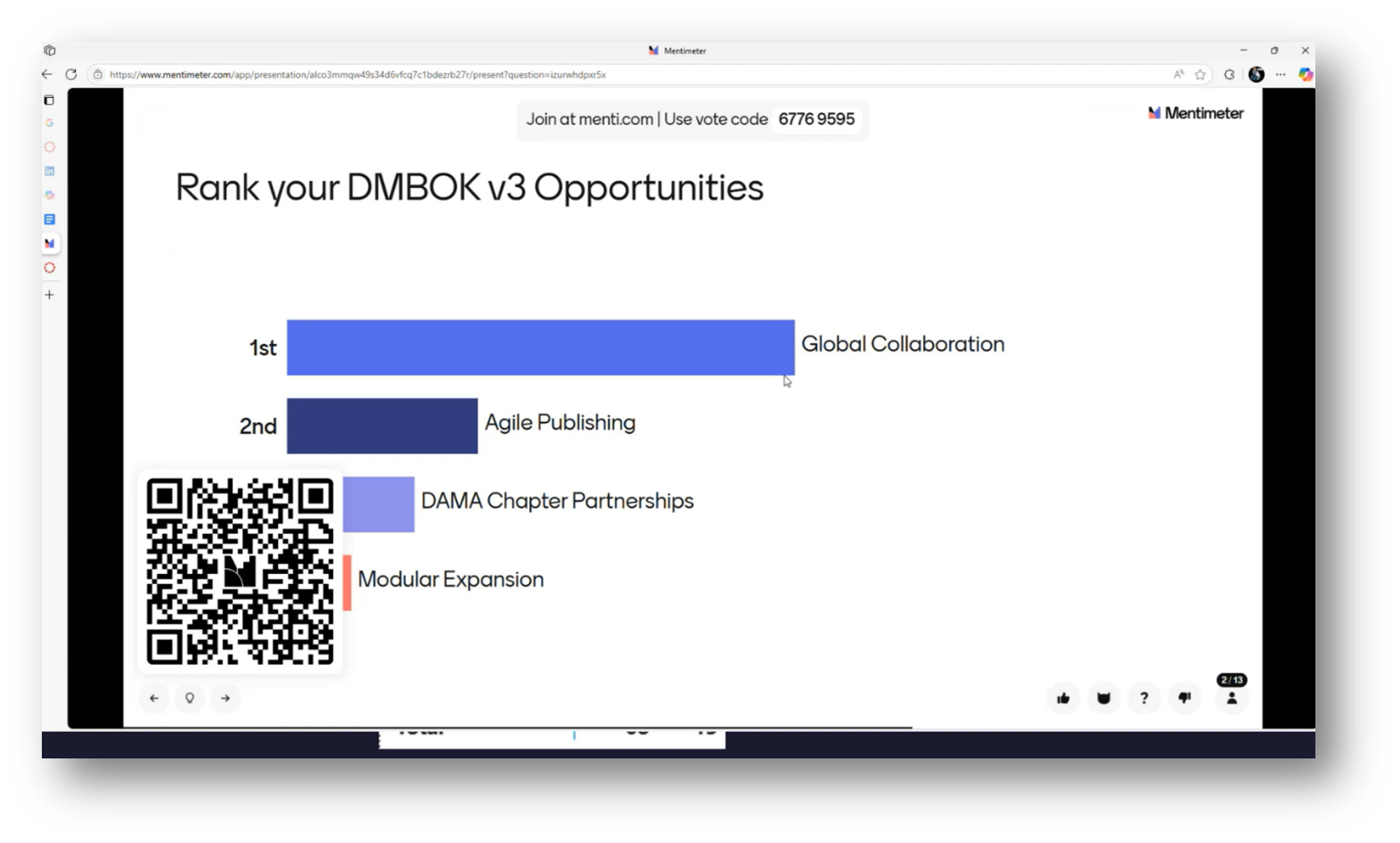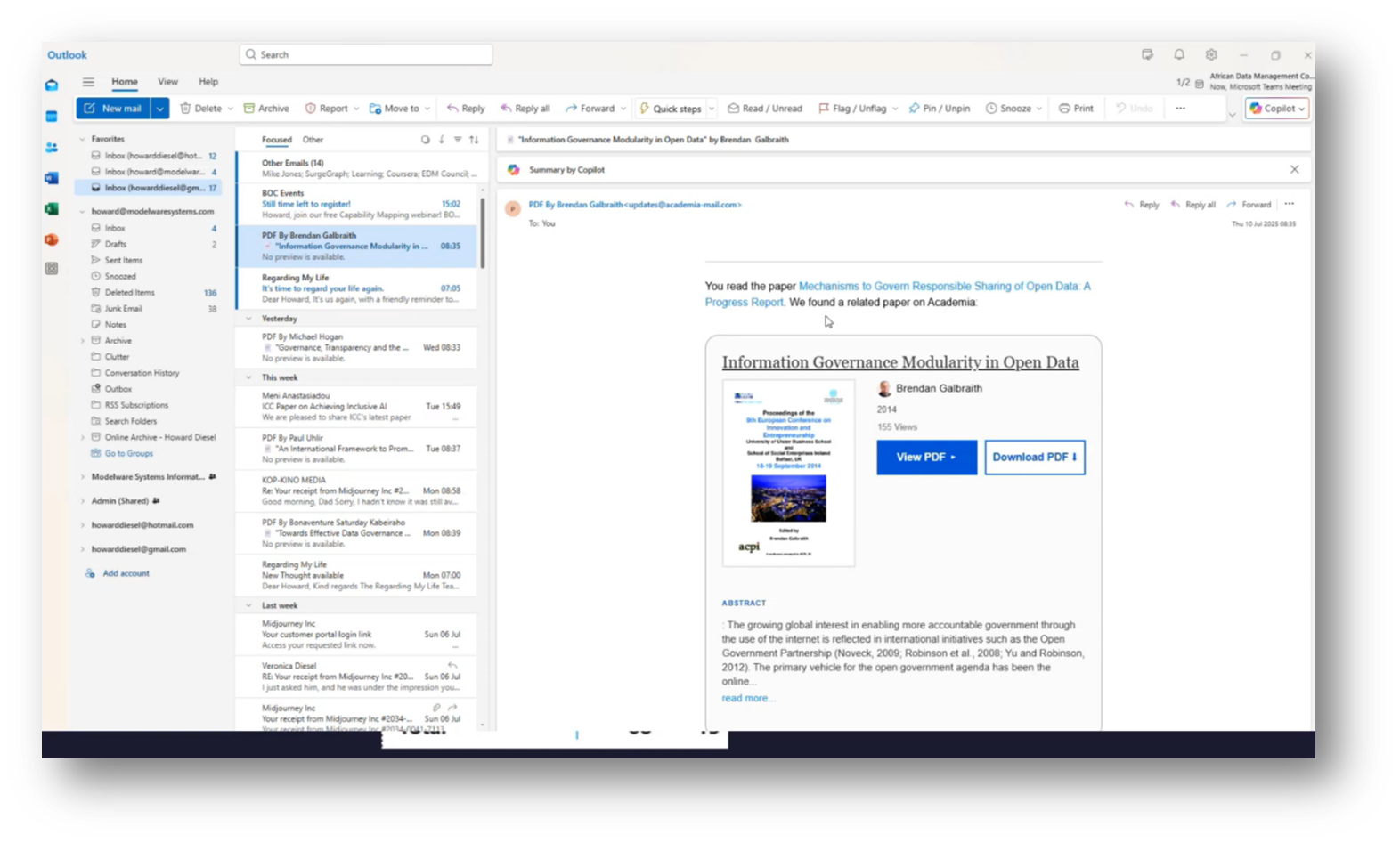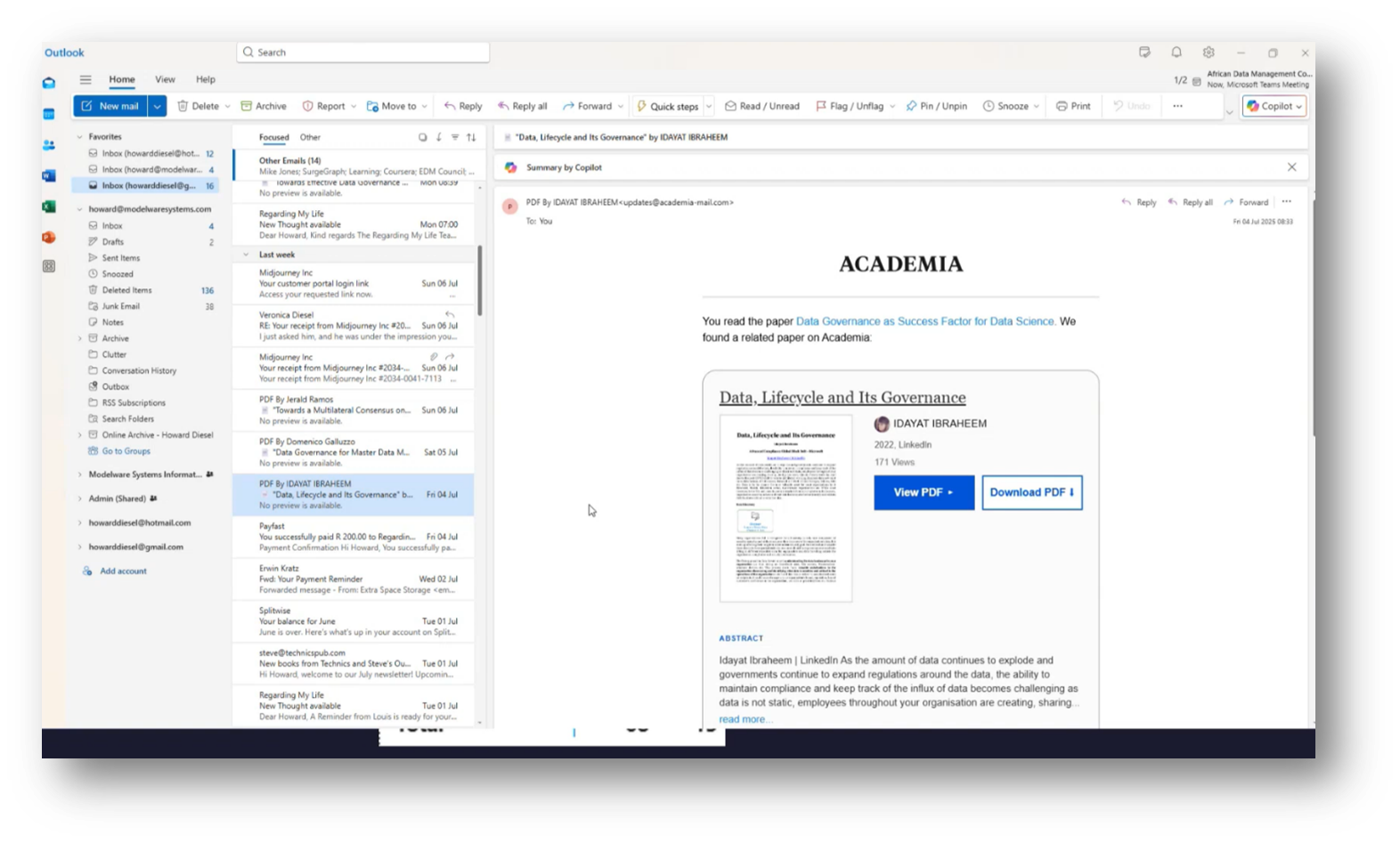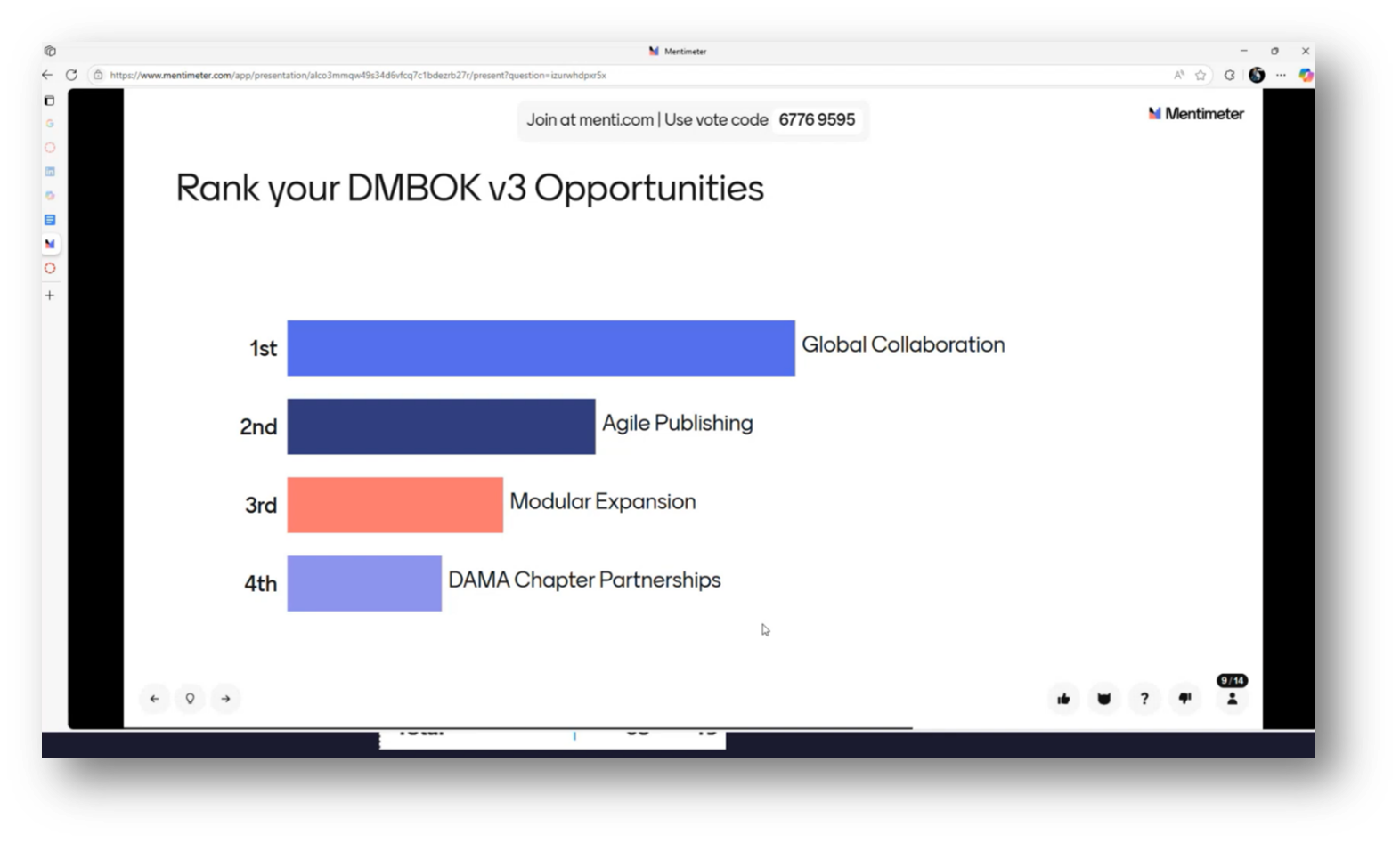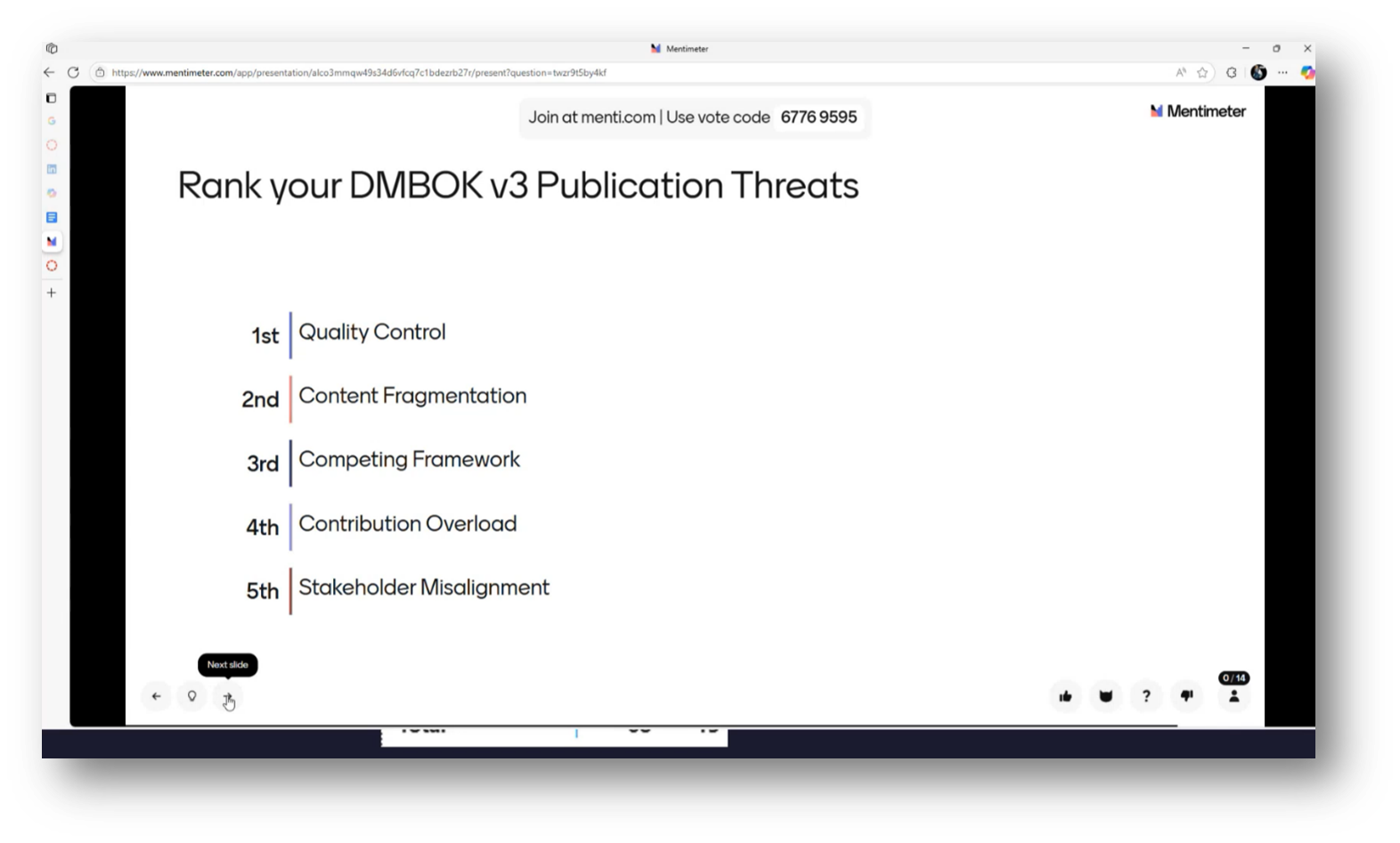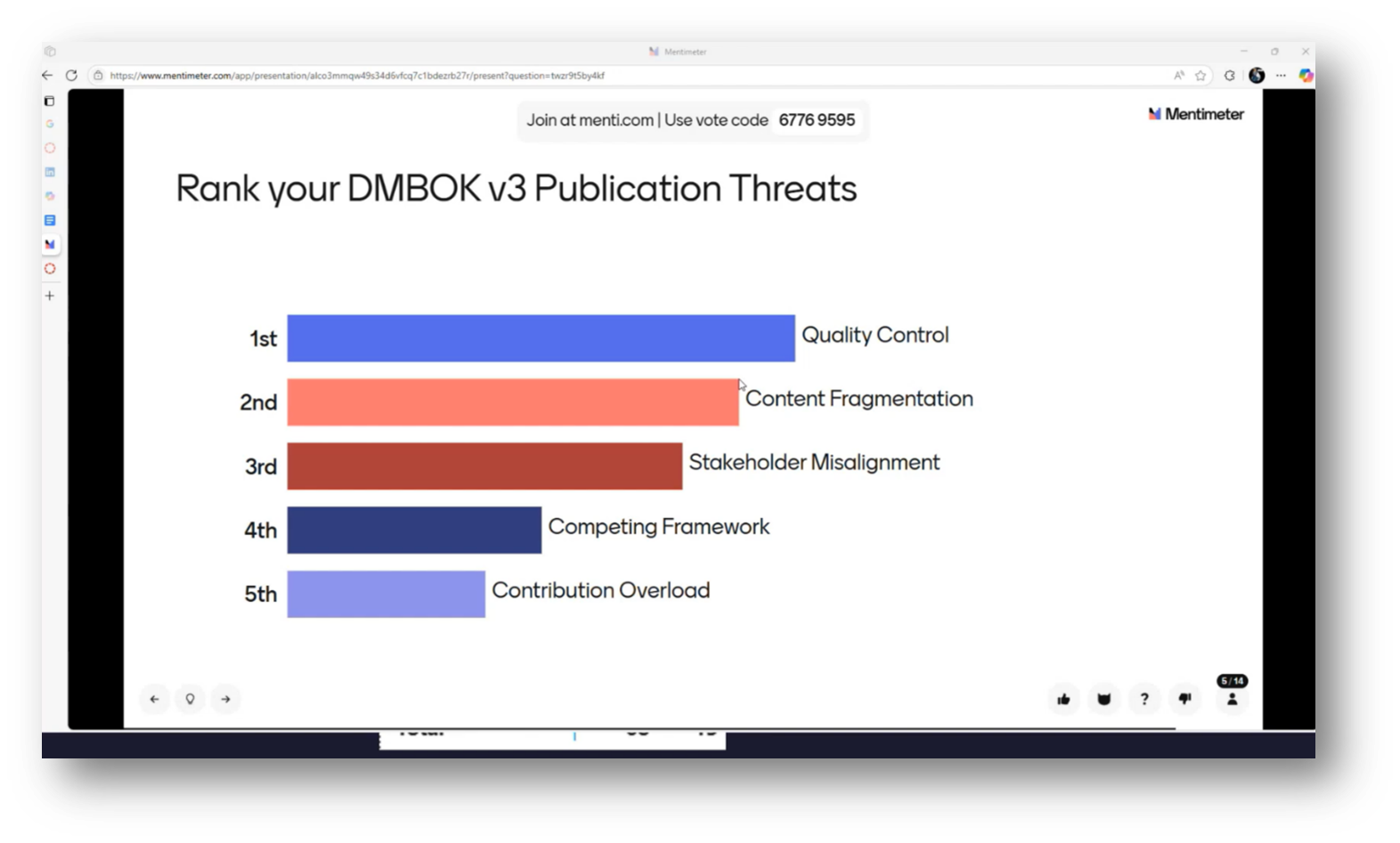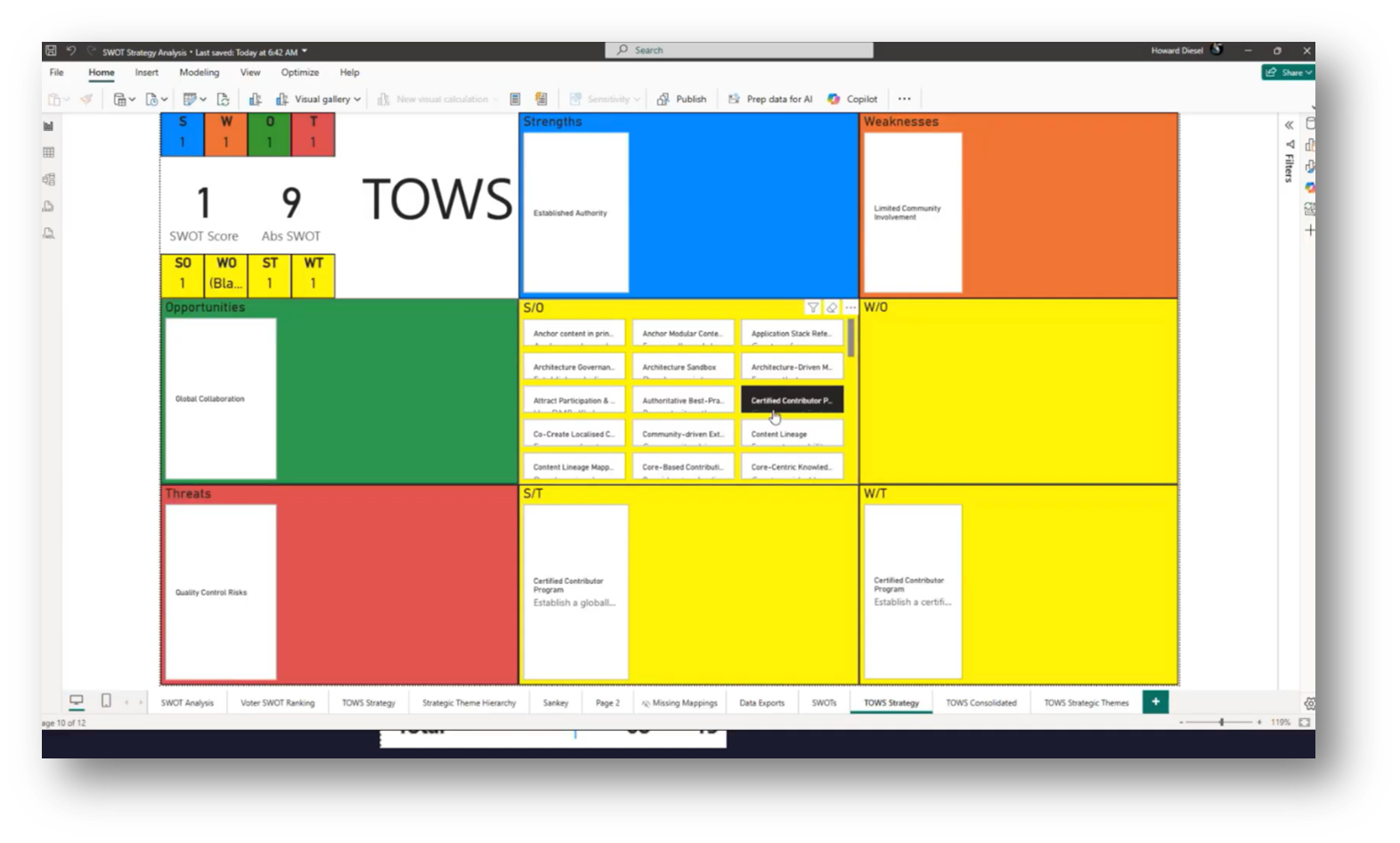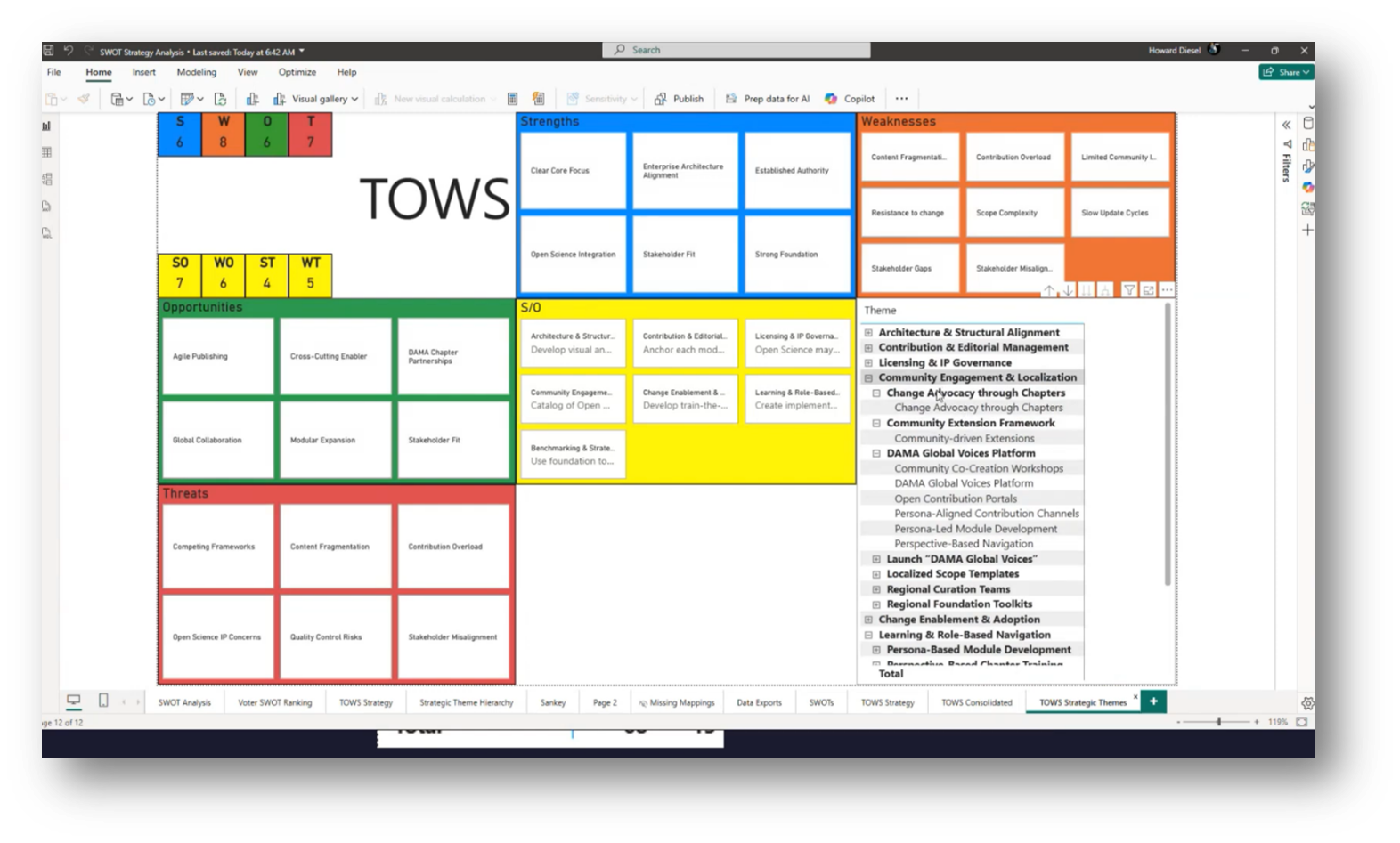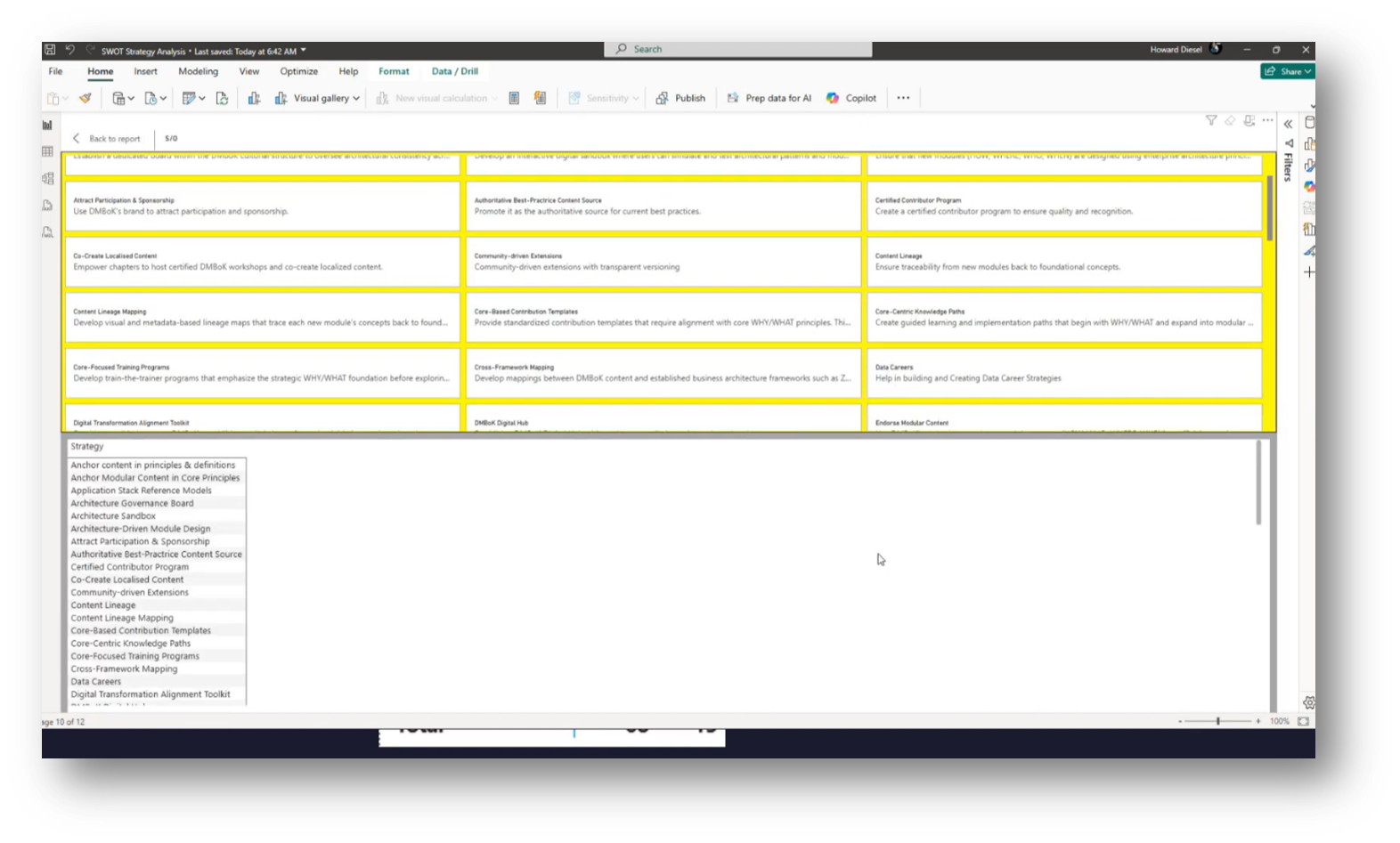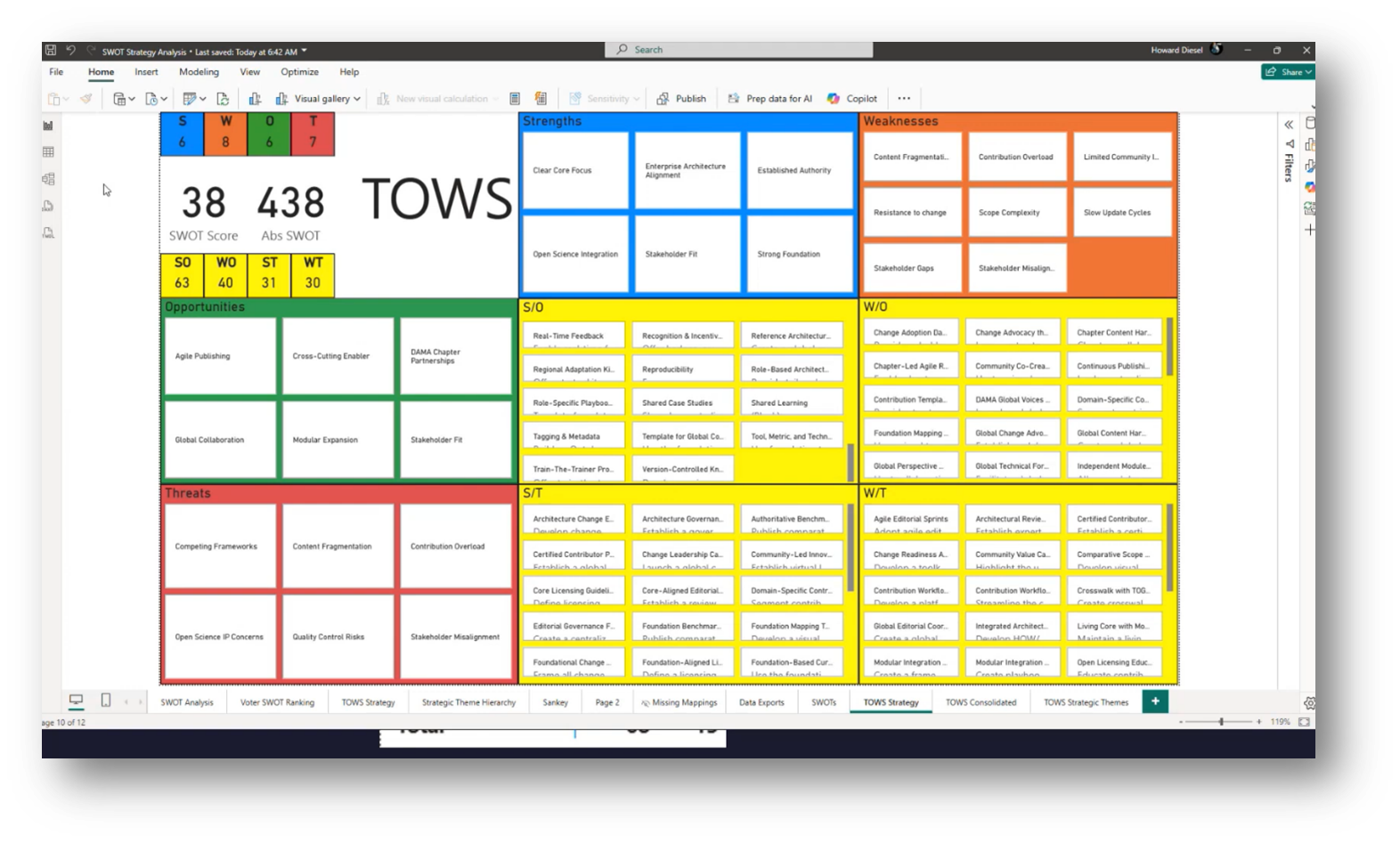Exploring the Data Management Body of Knowledge (DMBoK) for Data Citizens
Executive Summary
This webinar highlights key topics related to the advancement of data management and governance frameworks. Howard Diesel evaluates the strengths and weaknesses of the DMBoK Version 3 and emphasises the importance of a comprehensive content strategy, as well as the need for effective board representation in international relations. He then explores international travel opportunities and stresses the importance of global collaboration in data management, including aspects of open science, intellectual property, and volunteer-based organisational structures.
The webinar addresses the challenges of validating the CDMP exam, the future of open-source technologies, and the establishment of an architectural governance board. Howard also outlines the growth of data management frameworks, the development of a digital vocabulary framework, and the crucial role of information governance and AI in enhancing data management practices.
Webinar Details
Title: Exploring the Data Management Body of Knowledge (DMBoK) for Data Citizens
Date: 2025-07-10
Presenter: Howard Diesel
Meetup Group: African Data Management Community
Write-up Author: Howard Diesel
Contents
Review of the DMBoK Version 3
Strengths and Weaknesses of a Content Strategy
Board Representation and International Relations
International Travel Opportunities
Global Collaboration and Data Management Opportunities
Open Science, Intellectual Property, and Volunteer-Based Organisational Structure
Challenges of Validating the CDMP Exam
Future of Open Source and Global Collaboration in Technology
Creation of an Architectural Governance Board
Growth of Data Management Frameworks
Development of a Digital Vocabulary Framework
Information Governance and the Role of AI in Data Management
Review of the DMBoK Version 3
Howard Diesel opened the webinar with the focus of continuing the review of the DMBoK versions two and three. He thanked the attendees for the valuable feedback and support in identifying areas missing from the main team slides. Additionally, he included a ranking of standardised strengths, weaknesses, opportunities, and threats (SWOT), and requested participation in a mentee quiz to gather additional rankings.
In the previous webinar, Howard explored various perspectives on authority and weaknesses within our group. He shared that the review team initially identified slow update cycles as a significant weakness; the input received allowed us to consider alternative viewpoints.
Figure 1 DMBoK Version Two SWOT Analysis
Figure 2 Rank your DMBoK Weaknesses
Figure 3 Rank the DMBoK Version Two Strengths
Figure 4 Rank your DMBoK Weaknesses Pt.2
Figure 5 DMBoK SWOT
Strengths and Weaknesses of a Content Strategy
The recent assessment yielded a score of -13, indicating a predominantly negative evaluation with 24 identified weaknesses compared to only 17 strengths. The scoring system assigned values of +2 for strengths, -2 for weaknesses, +1 for opportunities, and -1 for threats, emphasising that while strengths can be reliably utilised, opportunities remain uncertain. Additionally, key weaknesses noted included a lack of key performance indicators (KPIs), inconsistent practices, unclear integration of knowledge areas, outdated information, and a limited focus on real-time data and streaming.
Howard reflected a critical viewpoint on the current relevance of the DMBoK, expressing concerns that it may have more weaknesses than strengths in today's context. An attendee noted that their perception of the DMBoK has shifted over time, suggesting it feels significantly lacking compared to five years ago—a sign of its deterioration.
The importance of identifying the target audience was emphasised, with a focus on the need for materials and insights that cater to a younger generation entering the field. While the participants acknowledge their extensive experience in recognising risks and threats, they express a desire for a more proactive focus on opportunities for newcomers.
During discussions on strategies and the conduct of SWOT analyses, an attendee highlighted the common tendency for individuals to focus on problems rather than opportunities or strengths. They emphasised the importance of regularly updating content to maintain its relevance and value, noting that outdated information can lead to challenges in perception and usability.
This observation reflects a broader issue observed in his data strategy work, where complaints about obstacles often overshadow conversations about potential improvements and advantages.
Howard highlighted the issue of degradation in understanding essential concepts over time, emphasising that this degradation accelerates due to the exponential nature of change. As time progresses, the perspective on core ideas becomes overly simplified and fails to address various relevant aspects and topics, potentially leading to a diminished grasp of important principles.
Figure 6 Rank your DMBoK Weaknesses Pt.3
Figure 7 Rank your DMBoK Version Three Opportunities
Board Representation and International Relations
Concerns were raised about the composition of the editorial board, particularly regarding the high number of members based in the US compared to those from other countries. This issue garnered significant attention, as several attendees noted complaints related to the geographic representation in the board's makeup. Additionally, while many members are indeed from the US, it was clarified that the focus was on the editorial board rather than the DAMA International board.
International Travel Opportunities
The focus shifted to opportunities. It was noted that there are currently six out of eleven identified opportunities, with Canada included due to its relevance to North America. Additionally, concerns were raised regarding China and Saudi Arabia, along with a question about whether a reference to Denmark was correct; however, it was clarified that the actual reference pertained to Belgium. The complaints regarding the situation appear to be escalating, indicating it is a significant issue.
Global Collaboration and Data Management Opportunities
Howard highlighted the importance of global collaboration and localised partnerships, particularly within the context of regulatory frameworks such as data privacy laws in Canada and the AI Act and GDPR in Europe. This localised approach is essential for addressing specific regional issues while scaling up publications and content developed at the Damer chapter level. Additionally, Howard emphasised the need to incorporate academic insights into these collaborations, reflecting a shift from a primarily corporate focus five years ago to a more inclusive strategy that values diverse perspectives.
The challenges faced by the private sector and the government were highlighted, as well as the importance of higher education in effectively managing data, which is considered a valuable asset for universities. Although they are slower to adapt, these entities share similar concerns about data management.
Notably, there is a lack of representation in frameworks like the DM Bach concerning higher education and local governments. An attendee expressed frustration over the complexity that schools encounter when addressing these issues and emphasised the need for more accessible solutions. Additionally, a growing body of research in academia focuses on international frameworks for effective data governance, addressing real-world challenges, particularly in regions such as Africa.
Howard emphasised the growing importance of data governance, data literacy, and data management in small institutions, just as in larger universities, despite differences in scale. Individuals within these institutions are actively seeking out research on effective practices and solutions that have worked for others, recognising that data-related challenges are universal, regardless of size.
There has been a notable shift since the pre-COVID era, when data management was primarily viewed through the lens of corporations, to now being regarded as a crucial aspect for educational institutions. As a result, access to relevant research on these topics has increased, indicating a recognition of the necessity of effective data practices in academia.
Currently, the topic of data governance is gaining significant traction, with discussions taking place at universities both domestically and internationally. Researchers are increasingly publishing papers on the realisation of data value as an asset, showcasing a notable collaboration between commerce professionals and academics.
This shift highlights an emerging trend where the traditional separation between practical and scholarly work is diminishing, allowing for a dynamic exchange of ideas and insights. Overall, this landscape presents numerous opportunities for engagement and advancement in the field of data governance.
Figure 8 Academic Articles on Data Governance
Figure 9 Academic Articles on Data Governance Pt.2
Figure 10 Rank your DMBoK Version Three Opportunities
Figure 11 Rank your DMBoK Version Three Publication Threats
Open Science, Intellectual Property, and Volunteer-Based Organisational Structure
The discussion highlights concerns regarding intellectual property (IP) challenges in the context of Open Science, particularly as global collaboration increases and diverse contributors engage in content creation. There is an emphasis on the need to address potential conflicts in IP ownership, especially considering that IP originating from the US has specific rights associated with its creation in the US.
An attendee suggested that, as developments like DMBoK 3 emerge, careful positioning of ownership rights will be necessary to ensure equitable treatment for all contributors involved. Additionally, there’s a focus on the importance of quality control in managing these issues.
Howard highlighted concerns regarding the quality of content produced by volunteer-based organisations like DAMA and its fragmentation, which may lead to challenges in competing with frameworks supported by full-time staff and contributors.
The phenomenon known as the "volunteer complex" is noted, where the perception of operating at a slower pace due to volunteer status may hinder responsiveness and effectiveness. In contrast, PMI, also reliant on volunteers, emphasises the importance of treating volunteer roles with the same seriousness as paid positions. Additionally, PMI's collaboration tools are described as fostering a strong sense of community and facilitating immediate interaction, making the exam sign-up process with PMI feel more streamlined compared to DMBoK.
Howard highlighted the distinction between the operational structure of the Project Management Institute (PMI) and its Project Management Professional (PMP) certification, noting that while PMI has some full-time employees, much of its work relies on volunteers. There is a perceived gap in alignment between the PMI's approach and that of other organisations involved in global collaboration, particularly as PMI is regarded as a standard-setter in project management. Furthermore, while PMI's certification is recognised internationally, it is suggested that other entities, such as DMBoK, can aspire to reach the same level of recognition and credibility in the field.
Figure 12 Rank your DMBoK Version Three Publication Threats Pt.2
Challenges of Validating the CDMP Exam
When registering for CDMP exams with the South African government, one key requirement is to provide evidence of backing from a recognised university or academic institution, which serves as validation for the qualification. There is uncertainty regarding whether PMI offers such academic endorsement for their certification. Typically, certifications are validated by the original documents supplied; validation requires the presentation of original degrees or certificates along with their associated identification numbers.
An Attendee highlighted that in South Africa, the challenge of integrating certifications into the national qualification framework (NQF) necessitates approval from academic institutions, specifically for the Certified Digital Marketing Professional (CDMP) qualification. This integration is crucial as companies need to link certifications to the Skills Development Fund to enable claims; without an NQF number, they cannot do so.
Future of Open Source and Global Collaboration in Technology
An attendee expressed their concerns about the upcoming exam, indicating they have decided to wait for the release of version 3, which they believe aligns better with their career aspirations. They are apprehensive about the potential changes between now and 2027 and question the lack of openness to more open-source solutions. They compare this situation to Python, which is developed and updated by a community of volunteers without any paid personnel, highlighting the importance of adaptability in rapidly changing environments.
Post-COVID, the evolving data landscape is emphasising the need for new frameworks to ensure the relevance of published material, as highlighted by concerns regarding the rapid changes in content validity. An attendee highlights the importance of a global collaboration platform that aims to incorporate expert insights on digital rights management (DRM). They reflected a tension between maintaining proprietary knowledge and the benefits of open access, acknowledging that clinging to outdated models may result in losing valuable opportunities. Furthermore, strategies for fostering global collaboration and continuous updates are being explored to address these challenges effectively.
Howard then focused on establishing a structured approach to content control and core focus within a framework that allows for modular extensions. This involves creating a system that integrates new information, ideas, and local perspectives, enabling community contributions such as papers. The initiative, termed "Global Voices," aims to develop open contribution portals while categorising content for different audiences, including executives and practice managers. Additionally, a peer review process may be implemented to enhance the credibility and visibility of submissions, with a proposed taxonomy to classify articles related to specific topics, such as governance and security.
The data management sector is experiencing growth, yet professionals in this field face significant challenges due to heavy workloads, making it difficult to invest time in the fast-paced industry. To address this, a robust collaboration tool similar to those used by PMI, complete with structured templates and community support, could facilitate greater engagement and growth in data certification and practices. The goal is to publish collaborative calls anchored in core principles, allowing for extensions in global collaboration, particularly in areas such as reference and master data.
The development of ontologies and knowledge graphs is fostering enhanced global collaboration, enabling a more detailed approach to content creation and management. As individuals become proficient in utilising these frameworks, they can contribute valuable content that becomes part of a broader body of knowledge. The emphasis is on creating a streamlined core framework while facilitating faster and more efficient community-driven extensions. This approach includes establishing content lineage and developing living documents to ensure the ongoing growth and adaptability of the knowledge base.
Figure 13 TOWS Strategy
Figure 14 TOWS Strategy Themes
Figure 15 SWOT Strategy Analysis
Creation of an Architectural Governance Board
Howard emphasised the need for a comprehensive reference framework that architects can use to develop an architectural governance model. This model would allow individuals to understand how their projects fit within a broader context, encouraging contributions through a controlled vocabulary while ensuring these additions are appropriate. The goal is to provide a structured way for users to classify their work and access detailed information seamlessly, enhancing collaboration and integration within the framework.
Growth of Data Management Frameworks
To effectively grow the Max framework, it is essential to make it practical and accessible, moving beyond theoretical concepts. Engaging the audience requires clear methods and models that simplify the implementation of the framework. The core should focus on the "why" and "what," while global collaboration addresses the "how" through practical templates and implementation frameworks.
This approach enables the production of relevant content, as demonstrated by authors like Jeanette McGilleray, who provide specific techniques for applying principles such as data quality within organisations. By maintaining a vocabulary that aligns with the core model, we can reinforce fundamental concepts while facilitating easier adoption and execution.
An attendee emphasised the importance of clarity and structure in data management certification and practices, particularly in Latin America. They emphasised the importance of establishing a common language around data governance, as many companies and job seekers lack a clear understanding of what data management entails.
While certifications like APMI are recognised for project management roles, there is often confusion regarding qualifications for data management positions. Howard suggested the necessity of frameworks that can provide a standardised approach to data governance, enabling better communication and comprehension across the field.
The rapid growth of artificial intelligence and big data presents a significant opportunity for advancing data management frameworks and initiatives. As competitors emerge and technology evolves at an astonishing pace, it's crucial to enhance our understanding of what constitutes good data.
This understanding enables better decision-making and emphasises the visibility of data management. By conducting a SWOT analysis, we can identify strengths to leverage, opportunities to capitalise on, and weaknesses to address, ultimately taking advantage of the current landscape to improve our strategies for data utilisation.
To address opportunities, we should focus on identifying specific strategies that enable us to capitalise on them effectively. Concurrently, we must assess our weaknesses and threats, developing actionable plans to improve these weaknesses and mitigate potential risks. The key lies in exploring the interplay between these factors and implementing changes that enhance our service delivery and overall performance.
Figure 16 TOWS Strategy Pt.2
Development of a Digital Vocabulary Framework
There is an ongoing debate regarding the framework for managing the dictionary, particularly whether to rely on the dictionary itself or to adopt an ontology or controlled vocabulary. Howard highlighted the importance of language and meta-models in structuring information effectively.
Howard emphasised the necessity of establishing a comprehensive framework for content delivery that caters to two user types: those who prefer a structured, wiki-like approach and those who favour the ability to navigate freely between topics. He highlighted the importance of utilising ontology or similar referencing mechanisms within this framework. Additionally, key challenges are identified, including the need to manage digital rights, facilitate user contributions, maintain quality, and improve the speed of article availability while adhering to acceptable procedures and frameworks.
There is an upcoming three-hour session dedicated to discussing the definition of data management and its appropriateness, particularly in relation to existing frameworks, such as Dewey. This session aims to achieve alignment among participants on what constitutes data management, which is crucial for establishing a solid foundation for further development and expansion of related vocabulary and requirements.
The importance of this alignment was emphasised, as disagreements could lead to fragmented publications, undermining the strengths of the existing foundation. Additionally, a professional editor would be involved to ensure clarity and cohesion in the outputs produced from this process.
Howard highlighted the potential for expansion beyond the initial version, emphasising that having a structured progression from version one to subsequent revisions, such as version two and its revised version, sets a valuable standard. He then expressed concern about the importance of achieving alignment in this process, underscoring that failing to do so would be unfortunate while remaining hopeful for a positive outcome.
Information Governance and the Role of AI in Data Management
In 2009, an attendee shared that discussions began around information governance, notably with IBM's launch of the International Information Governance Council, to which they became a part. A significant factor contributing to its success from a South African perspective was the enthusiasm surrounding regulatory change, particularly the introduction of new standards by the Institute of Directors. This initiative was linked to the King Report, specifically King III, which played a pivotal role in shaping corporate governance practices.
The King 2 report, released in 2009, significantly influenced corporate governance at the director's level and emphasised the importance of effective information management. With the forthcoming King 4, currently in draft form, there's potential for further enhancements in this space. The King series is widely recognised as a valuable global standard for corporate governance, yet it does not fully address issues raised by Christina regarding universities and other sectors. Therefore, understanding the energy driving directors and aligning it with these governance frameworks is crucial for fostering effective corporate management.
Howard discussed the complexities surrounding stakeholder alignment, highlighting the challenges of aligning various stakeholders with the right roles. He emphasised the difficulties in managing interactions between technicians and executives, underscoring the need to address diverse issues effectively. Ultimately, he pointed out that the Chief Digital Officer (CDO) plays a critical role in navigating these stakeholder dynamics.
The complexities of data management across various levels, as well as the importance of a unified approach in engaging different stakeholders simultaneously, were highlighted. Additionally, Howard emphasised the need for consistent content presentation across areas to avoid confusion during transitions.
An attendee referenced the Zachman framework, emphasising the appropriateness of content for different personas, including executives. They drew on their extensive experience and advocated for leveraging AI tools like "Claude" to enhance quality control and maintain consistency in document presentations. Overall, the attendee highlighted the potential of AI-driven solutions to improve data management processes with the right oversight.
The need for a professional editor to ensure consistency within and across chapters of a specific project was discussed to create a cohesive narrative as if it were authored by a single voice, referred to as the DMBoK.
This approach has been outlined by the board, highlighting the importance of maintaining uniformity in the content. Additionally, there is an intention to leverage available technology to support this vision.
The importance of responsibly utilising advanced technology, particularly AI, was highlighted to shape our future while maintaining accountability. Howard emphasised the potential risks of losing control when engaging with AI tools, which cannot be held accountable for their outputs. Furthermore, he acknowledged the advantages of certain frameworks, such as the DMBoK, which help avoid legal complications by allowing flexibility in content control. To effectively harness AI, it's suggested that users should limit its role to validation and consistency checks rather than allowing it to generate additional content independently.
Howard emphasised the importance of understanding and effectively utilising tools, acknowledging that some tools can be dangerous while others are safe. An attendee shared their experience of having insightful conversations with Claudia, whom they now consider a colleague. Through these interactions, they shared having gained a fresh perspective on communicating data quality concepts, learning new terminology to express the same ideas.
If you would like to join the discussion, please visit our community platform, the Data Professional Expedition.
Additionally, if you would like to be a guest speaker on a future webinar, kindly contact Debbie (social@modelwaresystems.com)
Don’t forget to join our exciting LinkedIn and Meetup data communities not to miss out!
